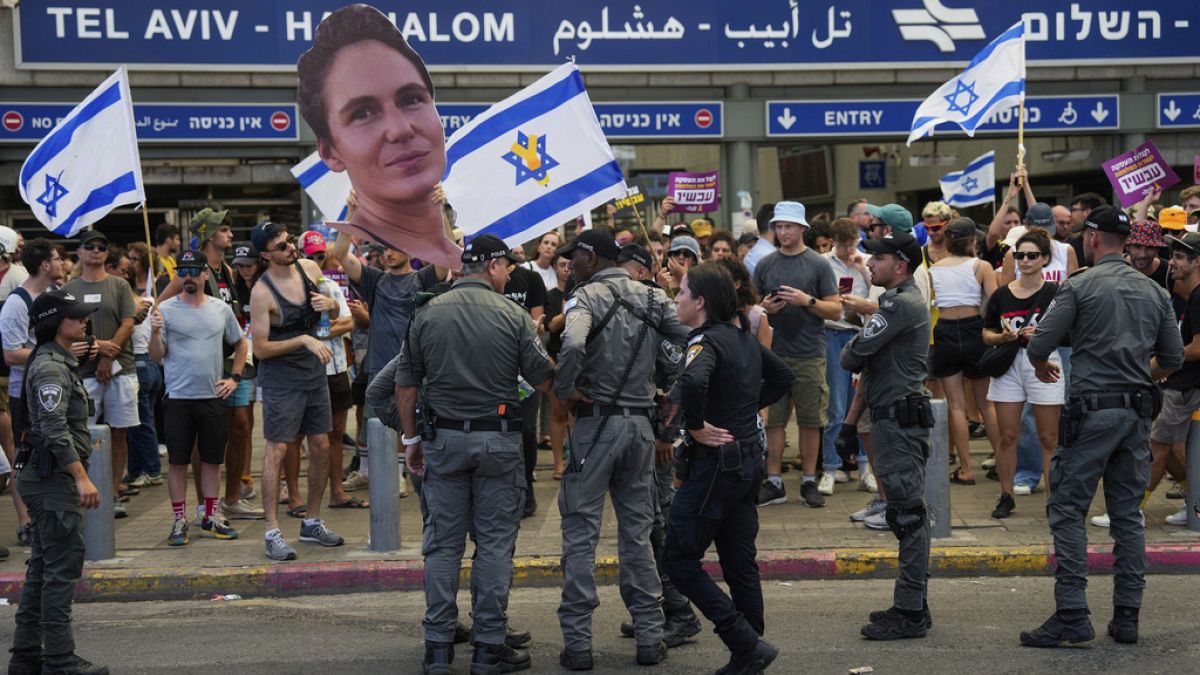A nationwide strike engulfed Israel on Monday as a form of protest against the government’s perceived failure to bring back hostages held by Hamas. The closures affected major sectors of the economy, including Israel’s main international airport. However, the strike was not observed in all areas of the country, showcasing deep political divisions among the population. The labour court intervened, ordering the strike to end based on a government petition claiming it was politically motivated. Despite this, the head of Histadrut, Israel’s largest trade union, complied with the ruling and directed members to return to work.
The strike was triggered by the discovery of six Israeli hostages found dead in Gaza, leading to public outrage and demonstrations across the country. Many blamed Prime Minister Benjamin Netanyahu for their deaths, arguing that a deal could have been reached to bring them back alive. On the other hand, some citizens supported Netanyahu’s approach of maintaining military pressure on Hamas, which initiated the conflict with their attack on Israel in October. The ongoing war has resulted in a high death toll among Palestinians, with reports indicating more than 40,000 casualties.
Parts of Israel, including densely populated areas like Tel Aviv, actively participated in the strike, while others such as Jerusalem did not. The Israeli military revealed that the hostages were killed shortly before IDF forces could rescue them from the tunnel where they were being held. Netanyahu condemned Hamas for the deaths, emphasizing that those who harm hostages are not interested in peaceful negotiations. The strike and its aftermath reflect the complex political landscape in Israel, with diverging opinions on the best approach to handling conflicts with Palestinian groups like Hamas.
Despite the widespread impact of the strike, its effectiveness as a means of pressuring the government remains uncertain. While protests and demonstrations can raise awareness and highlight public discontent, their long-term impact on policy decisions is often limited. The strike also revealed the challenges of unity among Israeli citizens, with some areas fully participating while others remained unaffected. The government’s response to the strike, including legal actions to halt it, indicates a desire to maintain control and address perceived threats to stability.
Moving forward, it will be essential for the Israeli government to address the underlying issues that led to the strike, including concerns about the handling of hostage situations and the broader conflict with groups like Hamas. Open dialogue and engagement with various sectors of society will be crucial in building consensus and addressing divisive issues. The aftermath of the strike serves as a reminder of the complex political dynamics in Israel and the importance of finding sustainable solutions to longstanding conflicts. As the country navigates through these challenges, a balanced approach that considers diverse perspectives and prioritizes peace and stability will be essential for moving towards a more secure and prosperous future.









